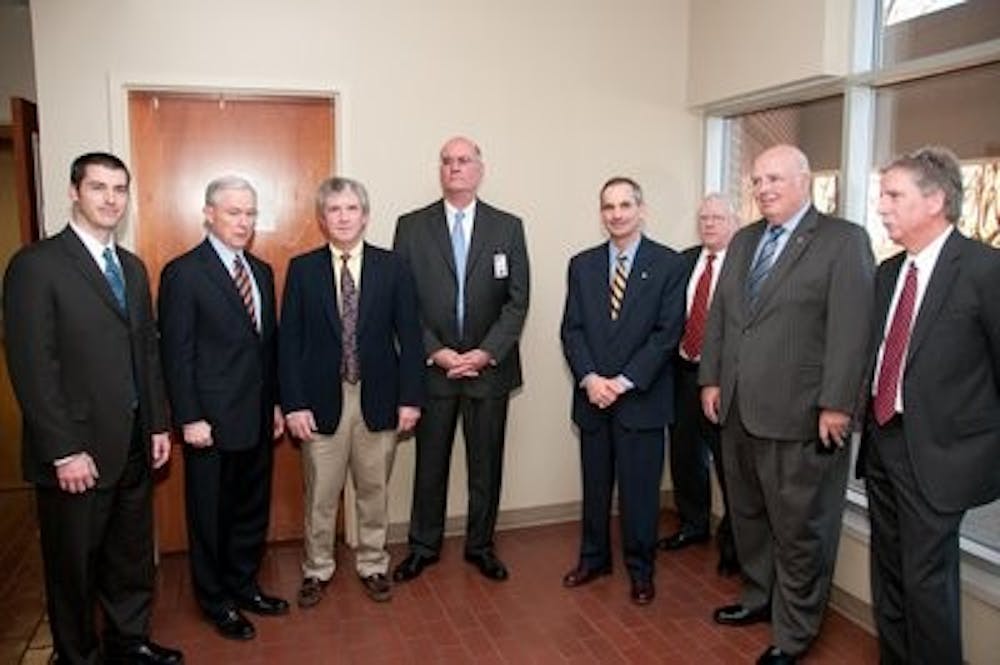The classroom buildings and animal hospital on Wire Road may not be comparable to the CIA headquarters or the Pentagon, but the College of Veterinary Medicine is doing its part to keep the world safe.
The Canine Detection Research Institute, a branch of the Auburn University Animal Health Performance Program, created a form of canine detection technology called Vapor Wake Detection to improve the utility of detection dogs.
"There is no other mode of technology out there as effective as a dog," said John Pearce, associate director of the Canine Detection Research Institute. "They are mobile and fairly inexpensive."
Developed in 2002, the Vapor Wake Detection program teaches dogs traditional explosives detection techniques while training them to detect explosives hidden on a person's body. A Vapor Wake dog can detect when a person is carrying explosives or can follow a vapor trail up to 15 minutes after an explosive source passes through an area.
"Our ultimate goal is national security," said Robert Gillette, director of the Canine Detection Research Institute. "What we've got is a way for an Auburn detection dog to go in and put a security monitor in an area if there is any danger."
Gillette said Vapor Wake dogs are highly effective because they can do their job without violating anyone's privacy. Dogs can be placed at a bottleneck point in densely populated areas and search each person as they walk by.
"Most people who encounter the dogs don't even realize they've been searched," Pearce said.
Every dog in the Vapor Wake program is a Labrador retriever.
Gillette said the Vapor Wake dog's frequent contact with people is the reason Labradors were chosen.
"A lab is a happy dog," Gillette said. "They're a sporting breed so they can handle multiple environments with minimal stress and people don't really have a problem with labs."
Gillette said an essential part of the Vapor Wake program is finding dogs that are excited about the work.
In order to find their strengths, each dog undergoes six weeks of detection training, 10 weeks of basic explosives training with a handler and an additional two-week period spent with their handler in an operational environment.
Gillette said people should not worry about the dogs' level of happiness.
"There's nothing these dogs would rather be doing," Gillette said. "If we put out a job application, these dogs would be the first ones calling in."
Senator Jeff Sessions stopped by Overton Auditorium on Wire Road for a demonstration of the Vapor Wake dogs' abilities Friday.
"I think state law enforcement loves these animals," Sessions said. "It's a relationship that can expand to the whole country in order to identify people who are a danger."
For Pearce, the national security aspect of the Vapor Wake program is the most important.
"Basically, we're hoping the technology will help police agencies better protect the nation," Pearce said.
Vapor Wake dogs are already in use in Amtrak stations in New York and Washington D.C.
For more information on the program, visit www.vetmed.auburn.edu/vaporwake-detection.
Do you like this story? The Plainsman doesn't accept money from tuition or student fees, and we don't charge a subscription fee. But you can donate to support The Plainsman.





